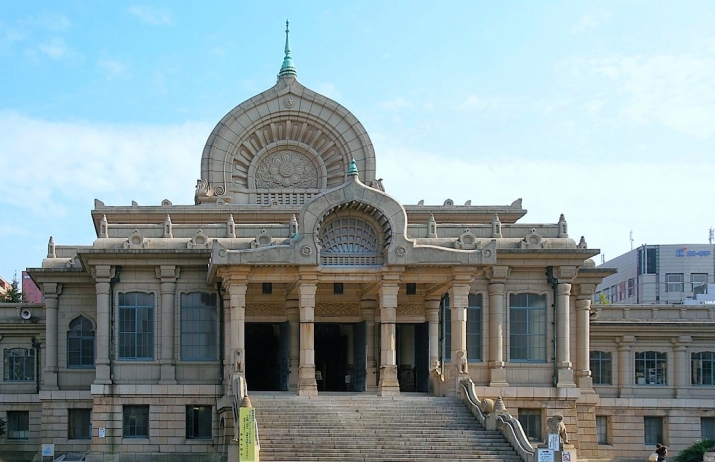NEWS
Tokyo’s Tsukiji Hongwanji Turns to Business Techniques to Bolster Attendance
 Tsukiji Hongwanji in Tokyo aims to use modern technology to boost attendance. From lilnyc.free.fr
Tsukiji Hongwanji in Tokyo aims to use modern technology to boost attendance. From lilnyc.free.frTsukiji Hongwanji, a renowned Buddhist temple in Tokyo, is banking on the experience of business-consultant-turned-Buddhist-monk Yugen Yasunaga in the hope that his business management acumen can help revive flagging attendance and draw followers from metropolitan Tokyo and the surrounding areas.
“A Buddhist temple should not be run on the capitalistic goal of solely pursuing profits,” said Yasunaga, 61. “But we cannot run a temple properly if we do not have funds. We need to reshape the organization and the system of a temple, as well as the mindset of monks, akin to an ordinary company and its employees.” (Asahi Shimbun)
A former bank employee, Yasunaga established a consultancy business in 2000. While heading his company, he enrolled in a human resources training school run by the Jodo Shinshu Hongwanji-ha denomination of Buddhism, of which his parents were followers. He ordained as a monk in his late 40s. “I wanted to live an honest life,” Yasunaga recalled. “I was also searching for [my] true self.” (Asahi Shimbun)
After spending several years at a temple in Tokyo, Yasunaga became involved in managing administration activities. The appointment of Yasunaga as somucho—head of the Tsukiji Honganji’s administrative office—in July this year was a cause of some surprise in Buddhist circles, as the post of somucho is traditionally held by a senior Buddhist monk after many years of service.
Yasunaga aims to establish what he terms a “virtual temple,” where lay people can seek help and advice online or over the telephone. In Yasunaga’s vision, the virtual service would also help individuals prepare for major life events, such as death. “I want to appeal to a broad audience by utilizing modern tools,” he said. (Asahi Shimbun)
His other ideas include a spiritual school for troubled corporate employees and integrating temples that are on the brink of collapse in rural areas with dwindling populations. Funeral services for prominent figures are often performed at Tsukiji Hongwanji, and Yasunaga also aims to reverse the trend of corporations using hotels instead of temples to host funeral services for top executives.
Tsukiji Hongwanji, located in the Tsukiji district of Tokyo, is a branch temple of the Jodo Shinshu Hongwanji-ha, or True Pure Land school of Buddhism. Also know as Shin Buddhism, it was founded in Japan by the former Tendai monk Shinran Shonin (1173–1263). Shin Buddhism is the most widely practiced branch of Buddhism in Japan, with 20 per cent of the population identifying as followers of the school. It has about 10,000 temples across Japan, although it is more popular in western areas of the country.
The original Tsukiji Honganji Temple was built in 1617 near Asakusa, but burned down when a huge fire swept through Edo (Tokyo) in 1657. The temple was rebuilt on the present site but was destroyed again by the Great Tokyo Earthquake of 1923. The existing main building was built in 1934 and combines a variety of architectural styles, including Buddhist, Hindu, and Islamic elements.
See more
Landmark temple in Tokyo hires business-minded monk to gain followers (Asahi Shimbun)
Tsukiji Hongwanji
Tsukiji Hongan-ji Temple (Japan National Tourism Organization)














